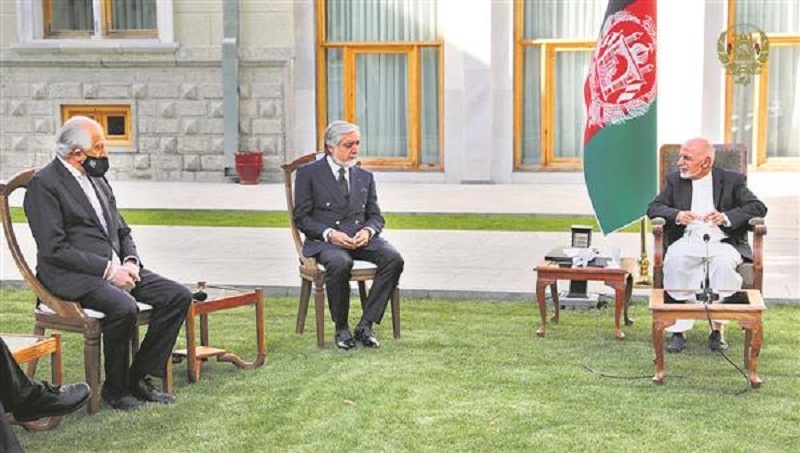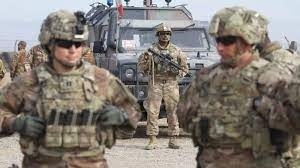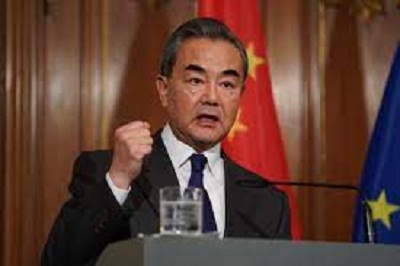Afghanistan Conundrum - India's Strategic Issues, Options and Choices

Afghanistan’s conundrum is a Himalayan challenge to overcome even by the consortium of world leaders - – Joe Biden, Putin, Xi Jinping, Imran Khan (Pakistan Army and the ISI), Hassan Rouhani, Recep Tayyip Erdoğan and leaders of Central Asian countries. To reach consensus on the ways of resolution of the crisis may be possible; but its implementation in letter and spirit is a forlorn hope.
Just like other external actor’s, India’s end objective is also enduring peace and stability with Afghanistan as a neutral country.
Of most recent, even Pakistan too is sending signals favoring neutrality of Afghanistan perhaps under pressure from China, which foresees threat to its BRI projects following US withdrawal from Afghanistan in September 2021. But, will the Taliban accept such a proposition of neutrality?
In reality, the contours of the Afghan endgame are shrouded in mystery. The Afghan Taliban, once a pariah, now finds itself courted by several powerful regional players. It is bound to demand full representation or control. Forging consensus on mutually acceptable power sharing is not easy. At best, the Afghan Taliban may compromise for substantial representation that excludes Ashraf Ghani and the hard line Hazara, Tajik and Uzbek leaders. Pakistan too will favor Afghan Taliban in control in Kabul.
Ipso facto, geopolitical shifts are a reality. And, the adage “Today’s friends can be tomorrow enemies; “Today’s enemies can be tomorrow’s friends”; or “No permanent friends only, but permanent interests” govern the course of deliberations behind closed doors.
India’s emissaries must exercise abundant caution, patience and calculated intellect with all other actors participating in the peace talk’s dialogue. In particular, they must promote and develop linkages with the Afghan Taliban representatives and forge endearing relations.
 Foremost to consider are proposals made by Afghan President Ashraf Ghani in various forums. "It is first and foremost a matter of getting Pakistan on board," Ghani said in an interview with Germany's Der Spiegel on 14 May 2021. "The US now plays only a minor role." Ghani said that in any case, "Western diplomacy should stop coddling" the Taliban.
Foremost to consider are proposals made by Afghan President Ashraf Ghani in various forums. "It is first and foremost a matter of getting Pakistan on board," Ghani said in an interview with Germany's Der Spiegel on 14 May 2021. "The US now plays only a minor role." Ghani said that in any case, "Western diplomacy should stop coddling" the Taliban.
After meeting the Pakistani army chief General Qamar Javed Bajwa in Kabul, Ashraf Ghani stated “the key to peace is future security agreement between Afghanistan and Pakistan. And, the question of peace or hostility in the country is now in Pakistani hands". He hastened to add that his goal was the neutrality of Afghanistan. "We don’t want a new protecting power, and we don’t want to be part of regional or international rivalries." He stated “Bajwa assured him that the restoration of the Emirate or dictatorship by the Taliban was not in anybody’s interest in the region, especially Pakistan".
Next, what are India’s key concerns? Ipso facto, India’s key concern is Pakistan, epi-center of terrorism, which is the host of Quetta Shura since 2001 besides Peshawar Shura and Miramshah Shura. Almost all veteran leaders of the Afghan Taliban collectively called also as the Rahbari Shura are residing in Pakistan cities. With the Afghan Taliban firmly in power in Kabul in post U.S. withdrawal, Pakistan image and role will be enhanced in Kabul. Its fallout is simple: diminution of India’s image and influence.
Also, Pakistan faces highly complex internal security challenges: Baluch and Sindh separatist movements; Pakistani Taliban known as Afghan-based Tehrik-e-Taliban Pakistan (TTP); LeT (Hafiz Saeed, Zaki-ur-Rehman Lakhvi, etc,); Jaish-e-Mohammad (Masood Azhar); ISIS; the Pashtun Tahafuz Movement (PTM); and the Gilgit-Baltistan nationalist movement. The “Snakes” that have been bred in its backyards are “stinging” them.
For India, Pakistan must stop providing safe havens to the Al-Qaeda in Indian Continent (AQIS) and its Kashmir affiliate the Ansar Ghazwatul Hind, the Lashkar-e-Taiba, the Jaish-e-Mohammad and the Islamic State or ISIS or Daesh (Wilayah of Hind) linked to IS-K in Afghanistan.
In sum, India’s primary concern remains Pakistan’s two-pronged strategy towards militant groups: conduct operations against groups targeting Pakistan State and civilians; and consider groups like the Afghan Taliban and Kashmir separatists in Pakistan safe havens as “strategic assets”.
China too wants peace and stability in Afghanistan, which will enable its influence to consolidate. Chinese Yuan replacing U.S. dollars is most probable. China does not favor Islamic Emirate regime in Kabul. China is also concerned that civil strife – ethnic conflicts – may facilitate Jihadist surge in Xinjiang in China. As Pakistan’s closest ally, China will also support Pakistan’s bid for greater influence in Afghanistan. Conjointly viewed, the China-Pakistan factor will be most worrisome for India.
 Chinese Foreign Minister Wang Yi told his Central Asian counterparts of Kazakhstan, Kyrgyzstan, Tajikistan, Turkmenistan and Uzbekistan in the Chinese city of Xian, in Shaanxi on 12 May 2021 that "We should cooperate to prevent transnational organized crime, drugs control, network security, managing non-governmental organizations, the security of large-scale activities and projects, and to safeguard our institutions, personnel, and facilities to create a safe Silk Road", and threat to its Belt and Road Initiative (BRI) infrastructure projects in the region. China has an eye on Afghanistan’s copper and oil reserves and would like to consolidate the OBOR/CPEC grand plans.
Chinese Foreign Minister Wang Yi told his Central Asian counterparts of Kazakhstan, Kyrgyzstan, Tajikistan, Turkmenistan and Uzbekistan in the Chinese city of Xian, in Shaanxi on 12 May 2021 that "We should cooperate to prevent transnational organized crime, drugs control, network security, managing non-governmental organizations, the security of large-scale activities and projects, and to safeguard our institutions, personnel, and facilities to create a safe Silk Road", and threat to its Belt and Road Initiative (BRI) infrastructure projects in the region. China has an eye on Afghanistan’s copper and oil reserves and would like to consolidate the OBOR/CPEC grand plans.
Recently Ashraf Ghani, Afghan President stated “that who would have thought China as factor few years ago. We have a lot of positive relationships with China and the growth of China now is going to be the factor as growth of India for regional prosperity.”
Russia’s end objective in Afghanistan is restoration of peace and stability. Russia too faces surge of Islam – second largest and fastest growing religion what with 25 million of Muslims out of 146 million. The Caucasus Emirate or Imarat Kavkaz, which is closely linked to al Qaeda’s al-Nusra Front in Syria, and the Caucasus Province of the Islamic State, which is an offshoot of ISIS are active. Just like India’s or China’s concern of Jihadists from Afghanistan joining the ranks of Kashmir or Xinjiang separatists, Russia too is concerned about jihadists from its Caucasus region and the former Soviet republics would join ISIS’ ranks in Syria and Iraq and then return home with new skills and weapons.
Russia’s foreign policy shifts are clearly discernible. Just like the U.S., Russia too may not favor Afghanistan governed by the Afghan Taliban alone whose Islamic Emirate rhetoric is contra regional peace and stability. Russia, the Afghan Taliban’s historical enemy, has recently turned to the group for intelligence sharing against a common foe: the ISIS. Zamir Kabulov, Russia’s special envoy to Afghanistan, said, “Taliban interests objectively coincide with ours.”
In particular, Russia appreciates that it cannot disregard Pakistan in resolving the Afghan crisis. It has drawn closer to China, Iran and Pakistan. More importantly, Russia is drifting from 50-year long strategic alliance/partnership with India forged in 1971 Russia was not keen on India’s participation during the first phase of negotiations due to India’s reluctance to deal with the Afghan Taliban and to appease Pakistan. Later in February 2017, India was represented when Moscow hosted consultations with six countries – Russia, Iran, China, India, Afghanistan and Pakistan.
Initially, Russians were wary of including India due to its role in the QUAD and also warming ties with Pakistan and China. Only in November 2018, when Russia held talks with the Taliban, members of the Afghan High Peace Council, and other regional powers, India was invited to send a nonofficial delegation of two diplomats to Moscow. Later in September 2020, S Jaishankar, India’s EAM, joined the inaugural session of intra-Afghan talks in Doha, addressing the gathering via video.
In a letter to Afghan President Ashraf Ghani, U.S. Secretary of State Antony Blinken proposed a United Nations-level meeting with the foreign ministers of China, India, Iran, Pakistan, Russia, and the U.S. to develop a “unified approach” to peace. Also, the U.S. proposed the intra-Afghan dialogue to be held in Turkey - Muslim country, which has close proximity to Pakistan and stable relations with Iran, Russia and China. By also involving India in the UN format, the U.S. has sent a clear signal to India that America, not Russia, is more inclined to help India preserve its interests in Afghanistan. The formal inclusion of India in the peace deliberations, and its growing U.S. partnership with the country, may alter the calculus of other regional players as well as the Taliban and the Afghan government.
All other neighboring parties including Iran want de-escalation of hostilities and restoration of peace and stability in Afghanistan. Central Asian nations and Turkey may agree with the consensus reached by the U.S. Russia, Iran, Pakistan and China. However, all of them have differing views on peace talk processes and the power sharing in the proposed new Afghan ruling regime.
Economic dimension is yet another key issue. After all, Afghanistan’s natural resources are estimated to be worth around $1 trillion, and Chinese companies have bagged some big contracts including “a 30-year lease to extract the second largest copper deposit – strategic material - in the world (valued at least $50 billion) for $3.4 billion“.
Furthermore, for Afghanistan and Pakistan the Turkmenistan–Afghanistan–Pakistan–India Pipeline (TAPI), natural gas pipeline, offers bonanza of royalties if there is peace, stability and neutrality in Kabul based on genuine change of Pakistan’s heart – the Army and the ISI.
India has made foreign policy shifts in its Afghan policy in the last decade. No longer, India is insisting on three red lines to include: the Afghan Taliban must accept the Afghan Constitution; renounce violence; and sever all ties with al Qaeda and other terrorist organizations and also “Afghan-led, Afghan-owned, and Afghan-controlled” peace process. India must not get carried away by past historic linkages with various ethnic groups in Afghanistan. Islamic bondage is the spring board of jihadist threat. India, therefore, needs to participate in consultations with alacrity in bi-multi polarity framework with all actors including the Afghan Taliban.
In India’s strategic interests, the “power sharing ruling regime” post peace agreement must ban not only al-Qaeda from using the Afghan territory but also all other militant groups treated as “strategic assets” by Pakistan and operating from its soil against India to safeguard its security concerns.
For Afghanistan, India’s entry into the talks should be a net positive if the endgame is to see a secure, stable, and economically dynamic country. Traditionally, the two nations have maintained strong bilateral ties, with focus on developmental projects. There is significant amount of goodwill between the Ashraf Ghani government and India. Ashraf Ghani paid a visit to India on September 19, 2018 and held a virtual summit in February 2021.
For India, the window of opportunity to further its strategic interests presently rest on its close linkages with Pashtun ruling members, Hazara, Tajik, Baluch and Sindh leaders. Hamid Karzai, former President, has been a regular visitor to India. The former Vice President, Marshal Abdul Rashid Dostum, Dr Abdullah Abdullah, the Chairman of the High Council for National Reconciliation, General Atta Mohammad Noor, former Mujahideen commander who personally took up arms against terrorists as the Governor of Balkh Province during the 2016 attack on the Indian Mission in Mazar-e-Sharif, and Foreign Minister Hanif Atmar, visited Delhi recently and held high-profile meetings with Modi, S. Jaishankar, Ajit Doval, H.V. Shringla, amongst others. In sum, there is close inter se relations and dependence. They provide an opportunity for India to participate meaningfully in peace talks.
However, India has limited influence over the Pashtun leaders forming the core of the Afghan Taliban. Re-kindling and establishing friendly relations with them is the real challenge and through them with the Afghan Taliban. The appointment of a Special Envoy to establish contacts with the Afghan Taliban is vital. Indian representatives must use the opportunity of attending “Peace Talks” to forge relations with members of the Afghan Taliban.
An early breakthrough in peace talks and mutually acceptable agreement is unlikely considering divergent end objectives of various actors. India must, therefore, adopt nuanced flexible response diplomacy to seize and exploit opportunities.
Come what may, India must be prepared to face the worst contingency – breakout of civil war in Afghanistan. In such a contingency, India must desist from placing its “Boots on the Ground” and attempt to go it alone in Afghanistan. Instead, India must align with other likeminded actors to aid friendly Afghan parties.
Finally, India may consider exercising the option of lending support to separatist movements inside Pakistan - the “Pashtun Nationalist Movement” and also the Baluch, the Sindh and the Gilgit-Baltisan separatist – as a counter to Pakistan’s intervention in Afghan civil war and intransigence in Kashmir and India’s heartland states.
